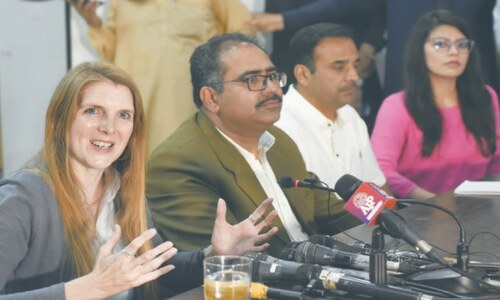ISLAMABAD: After raids by customs department and closure of medical stores in the twin cities, Drug Regulatory Authority of Pakistan (Drap) has decided to launch an aggressive campaign against the un-enlisted alternative medicines from today (Thursday).
However, Drap has no solution how medical stores should destroy un-enlisted medicines.
“We are having daily meetings over the issue and it has been decided to start aggressive campaign against the un-enlisted medicines. Moreover, so far customs department has not shared confiscated alternative medicines data with Drap but we have learned that they were not enlisted with Drap and medical stores were importing them without getting permission from the regulatory authority,” Drap Chief Executive Officer Dr Asim Rauf said while talking to Dawn.
This week the customs department had raided a number of medical stores in Rawalpindi and Islamabad and sealed them as they were selling imported alternative medicines but failed to show import documents.
The raids also triggered rumours that the alternative medicines and food supplements were being manufactured locally, but on packaging it was mentioned that they were manufactured in the US.
Federal drug inspector says he is empowered to take actions against such practices
Federal Drug Inspector Sardar Shabbir, while talking to Dawn, said he was empowered to take actions against such practices under Drap Act and Drug Act 1962.
“We regularly check medical stores and a few months ago some alternative medicines were recovered from a medical store in I-10. The recent raids were made by customs against two chains of medical stores over under-invoicing to avoid customs duty,” he said.
Alternative medicines can be sold without prescription of doctors and usually vitamins, food supplements and homeopathic medicines fall in this category.
“There was a wrong impression that those medical stores were selling fake medicines. Not a single medical store has been selling fake medicines in the capital. However, as per a video, watched by me, there were some issues with a medicine which was confiscated from a warehouse of Rawalpindi,” Mr Shabbir said.
However, a pharmacist, requesting not to be quoted, said it was unfortunate that the departments concerned were not taking action against the sale of un-enlisted medicines.
“As a campaign is being started against un-enlisted medicines, not only medicines would disappear from the market but they would be disposed of by medical stores. They may throw medicines in the garbage which will damage the environment,” he said.
“It becomes a reason for environmental pollution when medicines are dumped in soil or thrown in the water. They become hazardous for the plants and also for the bacteria present in soil or for aqua life. Drap should announce a policy to allow the medical stores to hand over the alternative medicines voluntarily and announce that no action would be taken against them. Un-enlisted medicines should be destroyed through incinerators,” he suggested.
A senior official of the Islamabad Capital Territory (ICT) administration, requesting anonymity, said in the past some of the health departments and drug inspectors were under the control of the ICT.
“At that time things were going smoothly and making a decision was very easy. I believe that Drap should take decision to destroy the un-enlisted medicines, if people surrender voluntarily, just like Excise and Taxation Department destroys liquor,” he said.
In 2016, Khyber Pakhtunkhwa Health Secretary Mohammad Abid Majeed had written a letter to the then federal health secretary raising the issue of unregistered medicines being sold in the market.
In the letter, it was alleged that a number of fictitious firms had started supplying the so-called food supplements, neutraceuticals, infant and baby formula and herbal medicinal products in the market.
“Invariably all these so-called alternative medicines were reported as containing allopathic ingredients openly sold in the market. From January to June 2016 as many as 534 nutrition/alternative medicines were analysed by the provincial drug laboratories and it was found that there were ingredients which were hazardous to public health,” the letter had stated.
Published in Dawn, November 28th, 2019














































Dear visitor, the comments section is undergoing an overhaul and will return soon.